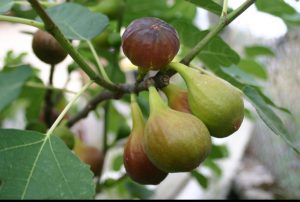 Citrus stands second after grapes in the world in terms of area and production. Citrus world leaders include US, Brazil and China. China with 15 percent and Brazil 7.0 percent have much higher area under citrus, however US is leading in per hectare yield producing 31 tonnes per hectare based on better technology and century old citrus nursery certification programmes. Citrus holds 19 percent area under cultivation producing 25 percent of total fruit production in Pakistan. However, static yield 8-10 tonnes per hectare of citrus for the last 60 years is a big question. In recent past there was slight increase in per hectare yield 2.0 tonnes per hectare that may be due to better management practices and high density plantations by progressive growers. Similarly if we look at global guava industry, Pakistan is merely producing 8.0 tonnes per hectare as compared with 21-28 tonnes per hectare in Taiwan and Brazil, respectively. Even India is producing 2-3 tonnes per hectare more as compared with Pakistan. In Pakistan 80 percent of the crop is contributed by Punjab province suggesting that this crop is very important for Punjab fruit industry. Pakistan is earning Rs 13.8 billion foreign exchange by guava exports and processing industry is also investing in this sector. However, unfortunately there is a very sharp decline observed both in area (1,800 hecates) and production (3,400 tonnes) from 2007-2011 that needs to ponder.
Citrus stands second after grapes in the world in terms of area and production. Citrus world leaders include US, Brazil and China. China with 15 percent and Brazil 7.0 percent have much higher area under citrus, however US is leading in per hectare yield producing 31 tonnes per hectare based on better technology and century old citrus nursery certification programmes. Citrus holds 19 percent area under cultivation producing 25 percent of total fruit production in Pakistan. However, static yield 8-10 tonnes per hectare of citrus for the last 60 years is a big question. In recent past there was slight increase in per hectare yield 2.0 tonnes per hectare that may be due to better management practices and high density plantations by progressive growers. Similarly if we look at global guava industry, Pakistan is merely producing 8.0 tonnes per hectare as compared with 21-28 tonnes per hectare in Taiwan and Brazil, respectively. Even India is producing 2-3 tonnes per hectare more as compared with Pakistan. In Pakistan 80 percent of the crop is contributed by Punjab province suggesting that this crop is very important for Punjab fruit industry. Pakistan is earning Rs 13.8 billion foreign exchange by guava exports and processing industry is also investing in this sector. However, unfortunately there is a very sharp decline observed both in area (1,800 hecates) and production (3,400 tonnes) from 2007-2011 that needs to ponder.
Health status of our fruit plant orchards is alarming and poor health leads to early termination of plants productive life leading to a decline in fruit industry. Faulty nurseries, defective management, poor cultural practices, and other biotic and abiotic problems are considered as the major factors for collapse of the fruit industry. Biotic factors include different insects and diseases caused by pathogens like fungi, bacteria, nematodes and viruses particularly in citrus and guava. Phytophthora, Fusarium sp, Citrus TristezaVirus (CTV) and Citrus Greening Disease (CGD) are major alarming problems to citrus industry in the country and citrus exports have declined to merely 110,000 tonnes during 2007-08. Any damage to citrus and guava industry may yield huge losses to the country’s economy and stakeholders.
The maintenance of fruit industry and establishing new orchards is dependent upon regular availability of healthy and sanitation plant material. Mostly the edible scion cultivars in citrus show less tolerance to soil borne biotic threats and are therefore grafted on tolerant-resistant rootstocks to provide better root system. Like citrus rootstock guava is commercially raised from seeds and guava industry of Pakistan is seedling based. Guava is facing serious decline issue which is directly related to soil borne fungal problems like Phytophthorasp, Fusarium sp and in some cases nematodes. Fusarium sp is reported to cause drooping and wilting of guava leaves in recent studies. Our citrus and guava industry is dependent upon faulty conventional nurseries. There is yet no concept of container grown nursery in guava having sterilised potting media in the nurserymen and the growers. Sanitation situation is comparatively better in citrus since the concept of container-grown nursery is getting popular gradually. Further, Agri-Business Support Fund is also supporting establishment of certified plant nurseries with the help of USAID and many industrialists and progressive growers are trying to establish this highly lucrative business emerging as a future industry. So this is the right time to extend this concept and technology to guava and to other fruit crops to save our fruit plant industry from soil borne disease spread.
Most of our commercial fruit plant nurseries are not following standard sanitation practices thus acting as a source of disease spread particularly soil borne and seed borne diseases in addition to insects and microbial infestations in plants. There is absolutely no concept of media or soil treatment and rootstock seed treatment. Elite guava selections are producing fruit eight to 10 months a year if the growers are not sacrificing summer crop. This consistently regular bearing habit of selected guava cultivars has enhanced fruit growers’ interest in this nutraceutically important fruit crop, which is highly rich source of ascorbic acid as well. Guava growers are fetching good prices for their orchards from the tenants and people are interested to plant new orchards particularly in Southern areas of Punjab from District Faisalabad towards Sadikabad and in Sindh. Shirkpur (Sheikhupura) is the guava hub in Punjab holding great genetic diversity but badly hit by guava decline issue. The root cause of many problems seems to be running nurseries in non-professional traditional ways. The issue could be resolved by providing clean and healthy containerised nursery plants free from soil borne diseases to the progressive growers and establish model nurseries for the stakeholders for demonstration following Florida, California and Australian nursery
production models.
Container grown fruit plant nursery offers several advantages over conventional system of plant propagation in the field. Fruit plants can be propagated even in areas with poor soil, improper climate and helps in efficient use of the given space. These plants are easily portable without disturbing the plant root system. Container type and size could be modified according to the crop requirements. Potting media used is highly nutritious and free of soil borne pests thus blocking dissemination of soil borne diseases from nursery to the orchards. Container grown nursery is less labor intensive and provides absolute weed control. Round the year nursery production is possible provided plants are raised in controlled environment.
Based on these facts, a similar nursery model has been established in the Institute of Horticultural Sciences funded by joint venture of USDA and Endowment Fund Secretariat, University of Agriculture, Faisalabad. A locally fabricated environment-friendly model steam sterilisation unit-first of its kind- has been installed for potting media sterilisation and healthy citrus and guava nursery establishment in plastic containers is in progress. The technology is being transferred to all the stakeholders through training courses, literature and media to promote containerised nursery culture. One of our collaborators has established similar model nursery for mango and citrus in Sadikabad. The resulting orchards will have long productive life, higher yields, quality fruits and provide more income to the farmers and other stakeholders. Conclusively there is dire need to shift from conventional field propagation methods to container grown plant production system in both citrus and guava since ‘prevention is better than cure’.







